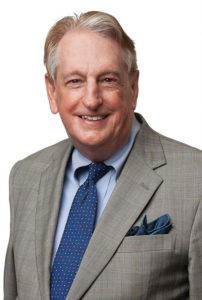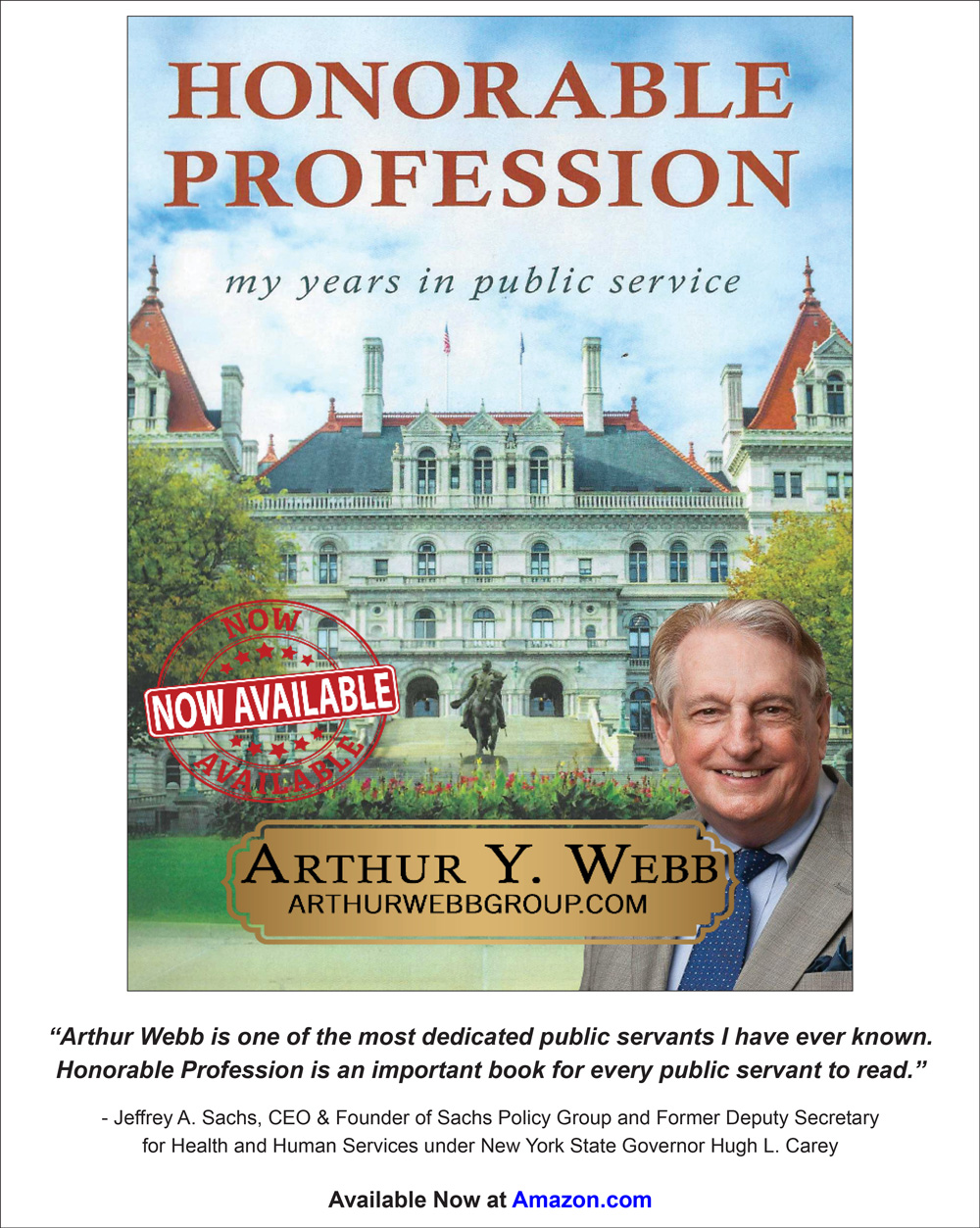Arthur Webb recently published a book titled, Honorable Profession: My Years in Public Service. Mr. Webb prepared responses to questions that colleagues and interested readers have asked him about the book. Mr. Webb’s previous book was published in January 2022 titled, Dangling on a String: The Future of Public Policy for the Field of Intellectual and Developmental Disabilities in New York. This was also featured in Autism Spectrum News in 2022.

Arthur Y. Webb
Why did you write this book?
There are two reasons for writing this book: one is that I wanted to counteract all the negative and hostile rhetoric directed towards public servants; and two, I wanted to provide an insider’s view of what it takes to manage in government.
Why do you say that public service is an honorable profession?
I was inspired as a young person by President Kennedy when he said: “Ask not what your country can do for you – ask what you can do for your country.” Our country is a young country and still trying to make democracy work for everyone. I entered into public services to strengthen the essential role of government, to shape its responsibilities and to ensure public dollars and resources were used in effective ways. I responded to the call.
Why do you use the term public servant?
First of all, the use of the term “public servant” is a more positive way of thinking about government employees. While bureaucrat and technocrat are often used but they sometimes carry a negative connotation. To “serve first” was instilled in me early when I was active in a national youth movement as a teenager. When I use the term public servant in this book, it embraces these deep emotions to serve first – be a servant.
What were your responsibilities over your 18 years in state service?
The book captures the lessons learned over 18 years as a public servant serving in six government agencies, four of which I headed. These agencies were diverse including state corrections, social services, health planning, substance abuse treatment and intellectual and developmental disabilities. Governor Mario Cuomo once referred to me in positive terms in a radio interview that I was a “utility player.” I interpreted this to mean that I could be called upon to undertake any position of responsibility.
What are the management insights that you talk about?
The book was originally titled “the art of public management.” Management in government is, indeed, an artform. How a manager or leader deals with conflict is at the heart of what it takes to survive and thrive. Conflict is the sharp edge of change. Reform does not come simply without conflict.
Surviving and thriving are not the same thing. Surviving requires cunning, shrewdness, iron will and quick escapes with no trail. Thriving demands vision, leadership, motivation, innovation, principles and courage.
Another powerful insight is that as an executive, your personal and professional ethics are the most important aspect of your management style. It is the thing that people will remember. Without a sense of obligation and commitment to people and the truth, the dilemmas of choice are not clear.
A strong sense of the worth of every single person provides the dignity and nobility of government. This is at the core of why government exists.
As the head of several agencies, what would you say to any new manager?
A public servant has to be ready for the unusual or unexpected from a sudden storm, an oil crisis, a union walkout, a sudden departure of a senior official, or a pandemic. Be ready to adapt and adopt a mindset to manage these sudden circumstances.
The view at the start of the race is very different than the view at the end of the race. The rewards and results are different than you think or expect.
Be careful when the thin veneer of rationality is stripped that there is something of substance. This is a moral and political imperative.
Why do you think “politics is the grease” that keeps government working?
The reality is that we live in a political world where there is give and take, better known as compromise. Also, politics keeps government from totally being technocratic while government maintains stability and continuity. We need both to work effectively to sustain our form of government.
Government is an anchor for democracy that needs constant revitalization, which politics gives us.
Isn’t your book more like an autobiography?
I honestly struggled at first with the dilemma of being an autobiographer versus being an insider and telling a story. Keep in mind, this book is two books in one. The second half of the book was written 30 years ago and was ready for publication, but I held on to it. This part of the book is more about the art of management while the first half captures some of the stories that illustrate and support the management lessons. Overall, I see the book as storytelling.
In looking back at your career in public service, what do you see as your greatest accomplishments?
While I describe many of the successes and failures in my career in public service, I really think it was my ability to use common sense and willingness to take on some of the major challenges of the times that distinguishes my service. From closing state institutions like Willowbrook State School, or responding to AIDs crisis in the prison system, or expanding services for substance abuse with treatment on demand, and optimizing Medicaid to serve the poor and disabled, were all highlights for me. The truth is I never indulged in broadcasting our successes. I let actions speak louder than words. I seldom look back other than remembering the lessons learned. Nostalgia is not my thing. Indeed, all of this made writing this book that much harder.
The Times Union in Albany recently published a commentary by you where you wrote that you were optimistic about public service. Why?
The thousands of people I have worked with in the public sector have met the challenges of their jobs with impressive skills and ethics. I remain optimistic about the role of government and the people who work in the public sector as a pillar for the well-being of our society. Our young country has had major swings in attitudes and expectations of government and, in many cases, in violent terms. Why do we tend to come to peace somewhere in the middle? Because at our core is a principled belief in our democracy.
In a nearly 20-year career with the state of New York, Arthur Y. Webb served as Commissioner of the Office of Mental Retardation and Developmental Disabilities (now the Office for Persons with Developmental Disabilities), Acting Commissioner of the Department of Social Services, Executive Director of the Division of Substance Abuse Services, Director of the Health Planning Commission and Deputy Commissioner of the Department of Correctional Services. He’s the author of the book “Honorable Profession: My Years in Public Service.”
For more information, visit arthurwebbgroup.com.







